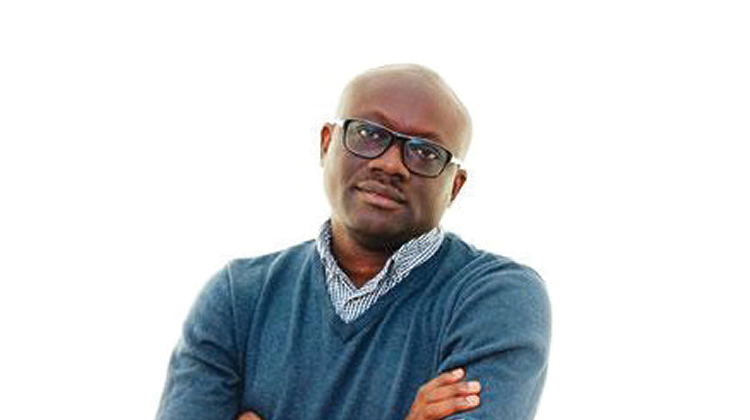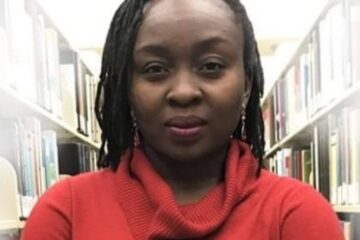The Kemi Badenoch Complex [OPINION]

Simon Kolawole
By Simon Kolawole
“But she spoke the truth.” That is the most common retort among the diehard fans and devotees of Mrs Kemi Badenoch — leader of the UK Conservative Party — who has been obsessed with saying nasty things about Nigeria since she made her way into the front row of British politics and started glowing under the klieg lights. She has said so many “truths” at a dizzying speed that I am slightly confused over what she intends to achieve. She said she left Nigeria in 1996 after “leftist policies” impoverished the middle class and caused “hyperinflation”. She said Yoruba “have nothing in common with northern Nigeria”. She said lizards, rather than water, flow from Nigerian taps.
I intend to, hereunder, challenge some of her egregious claims. To be clear, she has every right to say anything with her mouth. If she experienced trauma in Nigeria, she is free to tell the whole world. Nobody has the right to silence her. But there is one right she doesn’t have: to tell lies, misrepresent the facts or fan ethnic hate in a delicately poised country like Nigeria. Nigerians have every right to tackle her mischief. Her defenders say those who disagree with her utterances are only defending bad governance in the land. Thankfully, Mrs Badenoch did not invent criticism of bad governance in Nigeria. Nigerians do that every day in the media and on the streets. I do it regularly on this page.
Of all the awful things she said, the most disturbing is her promotion of ethnic bigotry. This woman is dangerous. Listen to her: “I find it interesting that everybody defines me as being Nigerian. I identify less with the country than with the specific ethnicity [Yoruba]. That’s what I really am. I have nothing in common with the people from the north of the country, the Boko Haram where the Islamism is. Those were our ethnic enemies and yet you end up being lumped in with those people.” This really excited her Nigerian fan base. Her father, the late Prof Olufemi Adegoke, a Yoruba nationalist, held similar views and even campaigned for the utopian “confederalism” which no country practises.
“But she spoke the truth.” But what manner of “truth” is her claim that Yoruba and northern Nigeria “had nothing in common”? Yoruba started interacting with northerners through commerce as far back as the 1500s. Fact. For centuries, they traded in cattle, kola nuts, horses, yams, cowries, firearms and glass beads. According to historians, the ethnonym ‘Yoruba’ — which Mrs Badenoch says defines her — was coined by northerners. I know some people are trying to re-write this fact but they have to travel back in time to erase history. They can argue that Yoruba and northerners should never have been in the same country, but they are not allowed to cannibalise the facts of history.
I have a sense that Mrs Badenoch is only repeating what she was told at home or what she read on social media. I will encourage her to go beyond hearsay and read good books. I recommend ‘A History of the Yoruba People’, authored by Prof Adebanji Akintoye, a supporter of Sunday Igboho, the Yoruba Nation separatist. Her father once described Igboho as “brave” for his secessionist rhetoric. She can also read ‘The Yoruba: A New History’, authored by Dr Akinwumi Ogundiran, a history professor at the Northwestern University, the US. Mrs Badenoch will be sad to discover the history of Yoruba intercourse with northerners and how this influenced culture and the Yoruba language.
It is obvious that Mrs Badenoch does not even know that the ethnonym ‘Yoruba’ did not refer to her own ancestors before colonial rule. ‘Yoruba’ was the identity of the Oyo-speaking people in today’s Oyo state and parts of Osun and Kwara states. Not all the people who call themselves ‘Yoruba’ today were called ‘Yoruba’ before colonial rule. The example I always cite — because it is easily on record — is Nigeria’s first newspaper which was established in 1859. It was named ‘Iwe Irohin fun Awon Egba ati Yoruba’ (‘Newspaper for Egba and Yoruba’). As of 1859, Egba people were not identified as Yoruba. Today’s pan-Yoruba identity, like most ethnic identities around the world, evolved with time.
Lest I forget, Mrs Badenoch said northerners “were our ethnic enemies”. My recommended reading for her in this regard would be ‘War and Peace in Yorubaland 1793-1893’, written by the late Prof Adeagbo Akinjogbin. She will be shocked to read about the intra-Yoruba wars: the Owo War (1820-1827), the Ijaye War (1860-1865) and the Kiriji War (1877-1893). Indeed, we can argue that the advent of colonialism and the “Lord Lugard lumping” of 1914 helped bring peace to what later became known as Yorubaland. Mrs Badenoch obviously thinks there was a lovey-dovey Republic of Oduduwa before the colonial masters came and “lumped in” her people with Boko Haram. Fantasy.
“But she spoke the truth.” She classified a region of 19 states as “Boko Haram”. She does not know that the north has nearly 200 ethnic groups (and millions of non-terrorists). In Borno state, the heartland of Boko Haram, most of the terror victims are Muslims. Fact. In this age and with all her education, exposure and experience in a multi-racial and multi-cultural society like the UK, I wonder how she plans to preside over a country where the Scottish, Welsh, Irish, and English people are “lumped in” — to say nothing about the millions from ethnic and religious minorities. She acquired British citizenship by birth; maybe she needs a crash course on the complex history of the UK.
Born to Nigerian parents in a British hospital in 1980, she was named “Oluwakemi” (incidentally, one of my younger sisters answers that lovely name, which, roughly translated, means “the Lord pampers me” or “the Lord blesses me”). Baby Oluwakemi was thereafter brought to Lagos, Nigeria, where she lived the first sixteen years of her life and received her basic education. A couple of years after her birth, the Nigerian economy ran into a serious storm amid a global recession. Dwindling oil revenues and the inevitable forex crunch forced many Nigerian factories to close down or retrench workers. The Shehu Shagari administration rolled out a mini reform package nicknamed “austerity measures”.
As prices of goods and services soared and economic pains intensified, the military overthrew Shagari on December 31, 1983. Major Gen Muhammadu Buhari became the head of state. The economy still did not improve much, even though oil prices recovered — and Buhari was overthrown by Gen Ibrahim Babangida on August 27, 1985. Babangida went on to implement the structural adjustment programme (SAP) — a reform package backed by the International Monetary Fund (IMF) and World Bank. The objectives were to transit to market economy through privatisation, grow agriculture, promote local industry, ramp up exports and cut subsidies to reduce government debts.
“But she spoke the truth.” What truth? When Mrs Badenoch left Nigeria in 1996, Nigeria was neck-deep in its market transition. The second-tier foreign exchange market (SFEM) was introduced in 1986 to liberalise the forex market. The naira crashed from roughly N1/$ in 1986 to N22/$ in 1996 (N88/$ in the parallel market). With an economy tied to imports, inflation was inevitable. Was SAP a leftist policy? Is forex liberalisation a leftist policy? Is privatisation leftist? Are IMF and World Bank leftist institutions? What truth, exactly? Meanwhile, when she relocated, Nigeria was still reeling from the June 12 annulment crisis which had paralysed the country politically and economically.
Her brother’s experience with the Nigerian police (“they stole his shoes and wristwatch”) is something Nigerians can relate with. After all, our youths held the #EndSARS protests against police atrocities in 2020. Definitely, the British police, which she praised, are better trained, better resourced and far more professional than ours. No argument. But in the year up to March 31, 2024, nearly 600 police officers were sacked in England and Wales for sexual offences, possession of child exploitation material, dishonesty and discriminatory behaviour. There is the famous case of David Carrick, a police officer who raped 48 women while on duty. Yes, she spoke the truth. Selective truth.
She talks exactly like those clout-chasers who think belittling Nigeria abroad is a ticket to glory. Responding to Vice-President Kashim Shettima’s caution over her unprovoked attacks, her aide said it is not her job to do PR for Nigeria. Fair enough. Her job is to urinate on Nigeria everywhere she goes. But think about it. President Barack Obama’s father was from Kenya. Rishi Sunak, ex-UK prime minister, has Indian roots. Humza Yousaf, ex-Scotland first minister, and Sadiq Khan, mayor of London, have Pakistani origin. Despite similar “truths” about their ancestral countries, they never open their mouths, like our dear Mrs Badenoch, to savage their roots. Emotional intelligence.
Now, my final words to Mrs Badenoch: grow up. You have already made history as the first black to lead the Tories. That is monumental. Work hard to become the next prime minister. Make history again. That is all you care about. But by outing yourself as an ethnic bigot, you are hurting yourself, not Nigeria. Denigrating us will not win your party more parliamentary seats. You behave like someone with a complex — like those slaves who felt privileged to supervise fellow slaves and often treated them with more disdain than the slave masters themselves. By the way, Mrs Badenoch, there is a Yoruba noun for those who point to their family house with the left hand. Go and find out.











